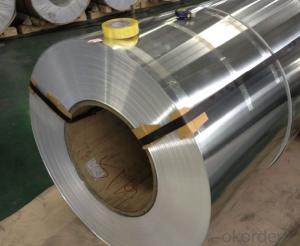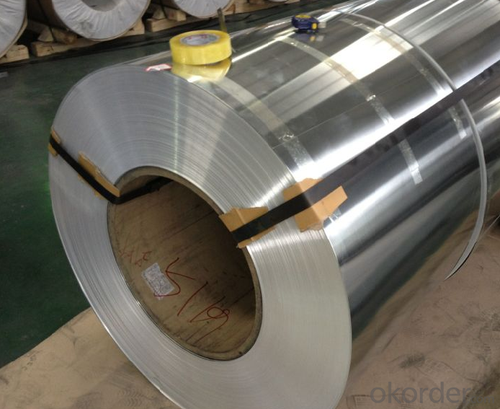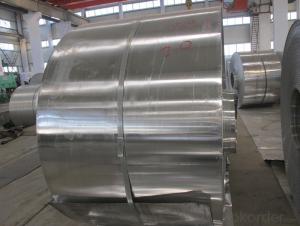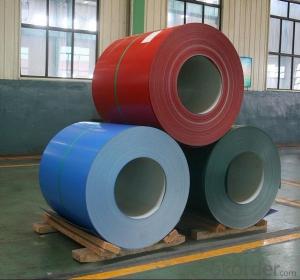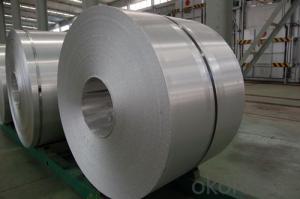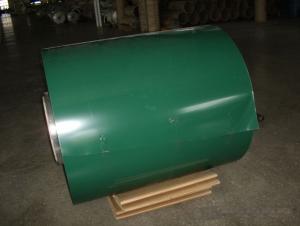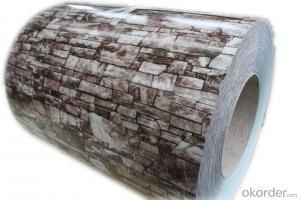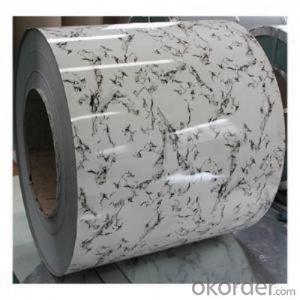Aluminum Coil Anodizing CC Aluminium in Coil Form for Making Roofing
- Loading Port:
- Shanghai
- Payment Terms:
- TT OR LC
- Min Order Qty:
- 5 m.t.
- Supply Capability:
- 1000 m.t./month
OKorder Service Pledge
OKorder Financial Service
You Might Also Like
Specification
1. Structure of CC Aluminium in Coil Form for making roofing
CC Aluminium in Coil Form for making roofing is one semi-finished aluminium material. This coil can be rolled down to aluminium coil,sheet,circle ect. The alloy AA1050 is widly used in building, industry ect. Its weight is much lower than steel. So many customers choosed aluminium material instead of steel.
2. Specification of CC Aluminium in Coil Form for making roofing
Aluminum Coil/Sheet | |
Main Specification | |
Alloy | AA1xxx (AA1050, AA1060, AA1070, AA1100 etc.) |
AA3xxx (AA3003, AA3004, AA3005, AA3105 etc.) | |
AA5xxx, AA6XXX (AA5052,AA5083, AA5754, AA6061, AA6062 etc.) | |
AA8xxx(AA8011, AA8006 etc.) | |
Temper | H14,H16, H18, H22, H24, H26, H32,O/F, T4, T6, T651 |
Thickmess | 0.01mm-100mm |
Width | 30mm-1700mm |
Standard | GB/T 3880-2006/ASTM |
Special specification is available on customer's requirement | |
3. Application of CC Aluminium in Coil Form for making roofing
(1).Interior: wall cladding, ceilings, bathrooms, kitchens and balconies, shutters, doors...
(2).Exterior: wall cladding, facades, roofing, canopies, tunnels,column covers , renovations...
(3).Advertisement: display platforms, signboards, fascia, shop fronts...
4. Feature of CC Aluminium in Coil Form for making roofing
Surfact Quality :
Be free from Oil Stain, Dent, Inclusion, Scratches, Stain, Oxide Dicoloration, Breaks, Corrosion, Roll Marks, Dirt Streaks and other defect which will interfere with use,
Mechenical Property:
Chemical Composite and Mechanical Property
5. Certificate of CC Aluminium in Coil Form for making roofing
SGS and ROHS(if client request, paid by client), MTC(plant provided), Certificate of Origin(FORM A, FORM E, CO), Bureau Veritas and SGS (if client request, paid by client), CIQS certificate
6. Image of CC Aluminium in Coil Form for making roofing
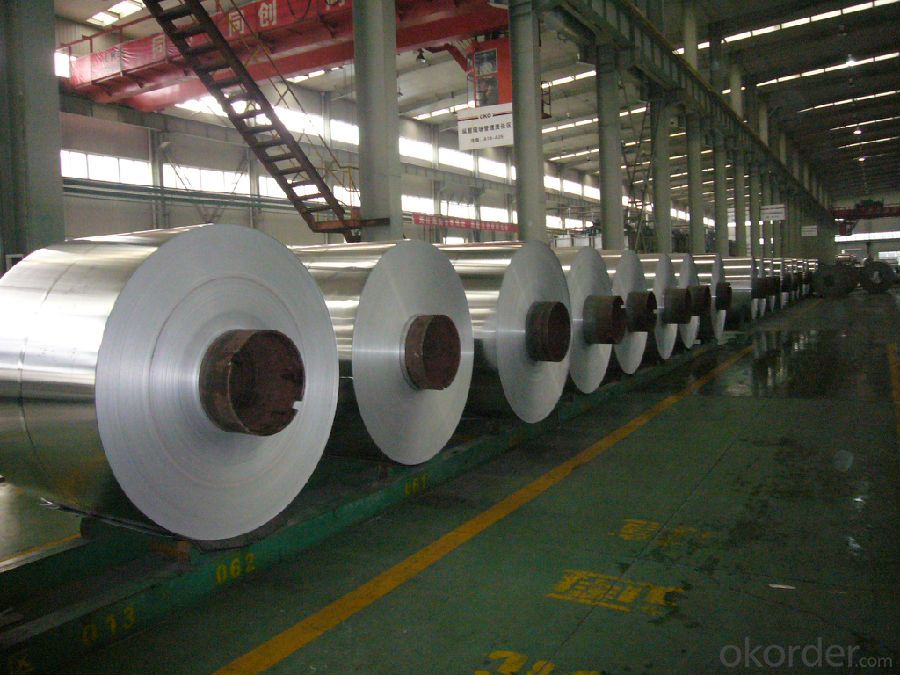
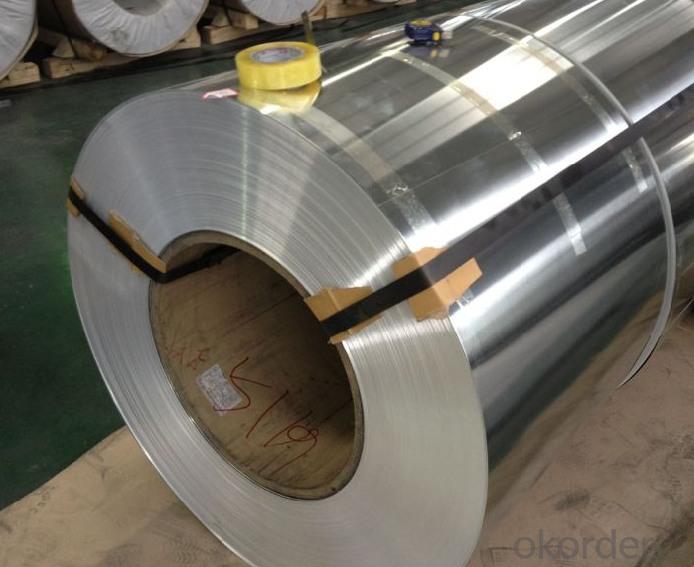
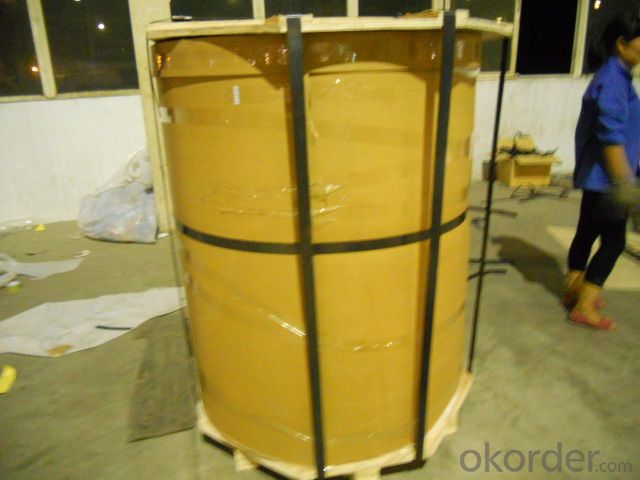
7. Package and shipping of CC Aluminium in Coil Form for making roofing
First, plastic cloth with drying agent inside; Second, Pearl Wool ; Third, wooden cases with dry agent , fumigation wooden pallets, aluminum surface could cover blue PVC film
8. FAQ
1) What is the delivery time?
Depends on actual order, around 20 to 35 days
2) What is the QC system:
We have QC staff of 20 persons and advanced equipment, each production is with MTC traced from Aluminum ingot lot.
3) What market do you mainly sell to?
Australia, America, Asia, Middle East, Western Europe, Africa etc
- Q: I need help with 3 main ideas for a aluminum and copper chloride lab. I need evidence for these 3 ideas that what happened was a chemical reaction.
- Change in mass, change in color, change in temp, change in ...
- Q: Are aluminum coils suitable for automotive heat shields?
- Yes, aluminum coils are suitable for automotive heat shields. Aluminum is a widely used material in the automotive industry due to its excellent heat resistance and thermal conductivity properties. It is lightweight and has a high strength-to-weight ratio, making it an ideal choice for heat shields. Aluminum coils can effectively dissipate heat and protect sensitive components from excessive heat exposure. Additionally, aluminum is corrosion-resistant, which is crucial for automotive applications where heat shields are exposed to various environmental conditions. Overall, aluminum coils offer the necessary properties and performance required for automotive heat shields.
- Q: Are aluminum coils suitable for corrosion-resistant applications?
- Yes, aluminum coils are suitable for corrosion-resistant applications. Aluminum has natural corrosion-resistant properties as it forms a protective oxide layer when exposed to air, which prevents further corrosion. Additionally, aluminum can be further enhanced with various coatings or treatments to increase its resistance to corrosion, making it a suitable choice for applications where corrosion resistance is required.
- Q: How do aluminum coils contribute to the corrosion resistance of products?
- There are several ways in which aluminum coils contribute to the corrosion resistance of products. Firstly, aluminum itself is highly resistant to corrosion, thanks to the formation of a natural oxide layer when exposed to oxygen. This layer acts as a protective barrier, preventing further oxidation and corrosion. When aluminum is shaped into coils, it offers additional benefits for corrosion resistance. The coil form allows for a more even distribution of the material, ensuring that the entire surface area of the product is covered by the protective oxide layer. This helps to prevent localized corrosion and ensures a consistent level of corrosion resistance throughout the product. Furthermore, aluminum coils can be coated with various protective coatings or treatments to enhance their corrosion resistance even further. These coatings provide an extra layer of protection against environmental factors like moisture, chemicals, and UV radiation, which can speed up corrosion. Additionally, aluminum coils are often used in conjunction with other materials, such as galvanized steel or stainless steel, in products. These combinations, known as bimetallic or trimetallic products, utilize the different properties of each material to enhance corrosion resistance. For example, the aluminum layer can act as a sacrificial anode, corroding preferentially to protect the underlying material from corrosion. To summarize, aluminum coils contribute to the corrosion resistance of products through the inherent corrosion resistance of aluminum, the even distribution of the material in coil form, the possibility of applying protective coatings, and the use of bimetallic or trimetallic combinations. These factors ensure that products made with aluminum coils have a longer lifespan and are better protected against corrosion in various environments.
- Q: What's the color coated aluminum roll?
- The so-called color coated aluminum coil, refers to the surface of Aluminum Alloy the coloring process, because Aluminum Alloy properties is very stable, not easy to be corroded, the general surface after special treatment can ensure that at least 30 years do not fade, because of its low density, high hardness, weight of unit volume of metal materials is the lightest. The color of aluminum is a new material recently emerged in the field of the plastic doors and windows, and compared, the biggest advantage is that the degree of firmness and color changing, There is nothing comparable to this, and never faced steel have always been questioned "toxic" two words. Therefore, in high-grade market doors and windows, sunshine rooms, balcony packaging and other fields are widely used. Now, color coated aluminum rolls have become one of the most popular top decorative materials. It is a kind of green with environmental protection, durability and beauty. It has the following advantages as decorative materials unmatched by other products: uniform color, bright and smooth, durable, strong adhesion, acid and alkali corrosion resistance, weathering resistance, decay resistant friction resistance, resistance to ultraviolet radiation, strong weatherability.
- Q: Can aluminum coils be used in electrical transmission systems?
- Aluminum coils have the ability to be utilized in electrical transmission systems. The utilization of aluminum is prevalent in electrical transmission systems due to its advantageous electrical conductivity, high strength-to-weight ratio, and cost-effectiveness in comparison to other materials like copper. Transformers, motors, generators, and other electrical devices benefit from the application of aluminum coils. Additionally, aluminum coils possess the advantage of being lightweight, simplifying their handling and installation in transmission systems. It is important, however, to take into account that aluminum has lower electrical conductivity than copper, necessitating larger cross-sectional areas to achieve the same electrical performance. To maintain efficiency, reliability, and safety, it is crucial to adhere to proper design and engineering practices when sizing and connecting aluminum coils in electrical transmission systems.
- Q: if air goes throught a lot of tiny aluminum will cause cooling? Why am i asking this because when you see inside the computer desktop has heatsink fan, and some of the heatsink are made by aluminum.
- The aluminium heatsink absorbs the heat from the component it is connected to, the heatsink will have a very large surface area-to-volume and the heat will pass into the air due to this. so you can see its not actualy the metal that causes cooling, the metal just transfers the heat to the air where it will be taken away by fans etc.
- Q: What precautions should we take to maintain health while using aluminum coils?
- <p>To protect our health when using aluminum coils, it's important to ensure that the coils are used in a manner that minimizes the release of aluminum into the environment or food. This can be achieved by avoiding high heat, as aluminum can leach more easily into food at high temperatures. Use aluminum coils in well-ventilated areas to minimize inhalation of fumes. Additionally, it's crucial to clean the coils properly to remove any residue that could contain aluminum. Regularly inspect the coils for any signs of wear or damage, as this can increase the risk of aluminum exposure. Finally, consider using alternatives to aluminum coils, such as stainless steel or cast iron, which are less likely to release harmful substances.</p>
- Q: I am confused by that. One guy told me that he puts aluminium foil on his modem to receive the Internet better. Another guy told me that aluminium stops all kind of rays. What is correct?
- BOTH ARE CORRECT.... COVER THE WHOLE WIRELESS MODEM WITH ALUMINUM FOIL AND GROUND IT SHALL BLOCK ALL THE WIRELESS SIGNAL. CONNECT A SMALL PIECE FOIL TO THE WIRELESS MODEM ANTENNA MIGHT INCREASE THE RANGE A BIT SOME TIME BUT USUALLY NOT WORKING WELL.
- Q: Can aluminum coils be used in the manufacturing of cans?
- Yes, aluminum coils can be used in the manufacturing of cans. Aluminum coils are often used to produce the thin sheets of aluminum that are then formed into cans. The coils are typically processed through a series of steps, including rolling, annealing, and slitting, to create the desired thickness and width for can production. The aluminum sheets are then cut into appropriate sizes and shaped into the familiar cylindrical can shape. Aluminum is a popular choice for can manufacturing due to its lightweight, durable, and corrosion-resistant properties. It also provides a barrier to light, oxygen, and moisture, helping to preserve the quality and shelf life of the contents inside the cans. Overall, aluminum coils are an essential component in the manufacturing process of cans and play a significant role in the packaging industry.
Send your message to us
Aluminum Coil Anodizing CC Aluminium in Coil Form for Making Roofing
- Loading Port:
- Shanghai
- Payment Terms:
- TT OR LC
- Min Order Qty:
- 5 m.t.
- Supply Capability:
- 1000 m.t./month
OKorder Service Pledge
OKorder Financial Service
Similar products
Hot products
Hot Searches
Related keywords
